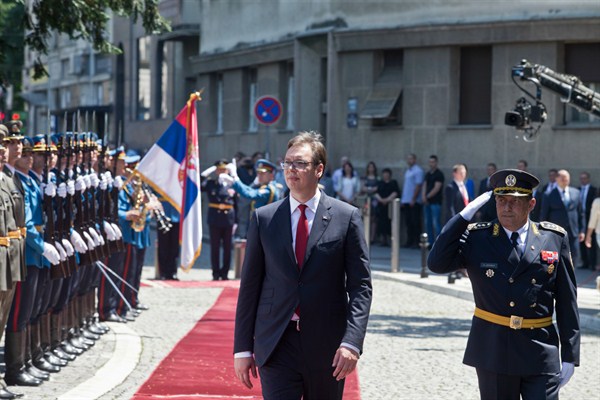In late April and into May, the U.S. deputy assistant secretary of state for Europe and Eurasia, Hoyt Yee, made several visits and high-level phone calls to the countries of the Western Balkans. These states have been wracked by corruption scandals and governing standoffs that have raised questions about the effectiveness of American assistance. Yee’s efforts have yielded some positive outcomes. But they also made clear that American diplomacy alone cannot provide the longer-term solutions to the region’s nagging political and economic problems.
After Yee’s visit to Skopje on April 29, Gjorge Ivanov, Macedonia’s president, finally gave the opposition party a mandate to form a government in mid-May, after a five-month-long standoff that ground the country to a halt. Yee’s calls to Kosovo’s then-prime minister, Isa Mustafa, focused on ratifying the demarcation of the border with Montenegro, a key issue. Although Yee’s calls ultimately did not yield the desired outcome—Mustafa’s government collapsed in a vote of no confidence on May 10—they showed the attention Washington is paying to political outcomes in Kosovo.
Following Yee’s May 15 visit to Tirana, the Albanian opposition party agreed to participate in national elections scheduled for late June. Finally, after Yee’s visit to Belgrade on May 24, Serbia’s prime minister-turned-president, Aleksandar Vucic, expressed his support for talks with Kosovo and thanked the United States for backing Serbia’s accession to the European Union.

